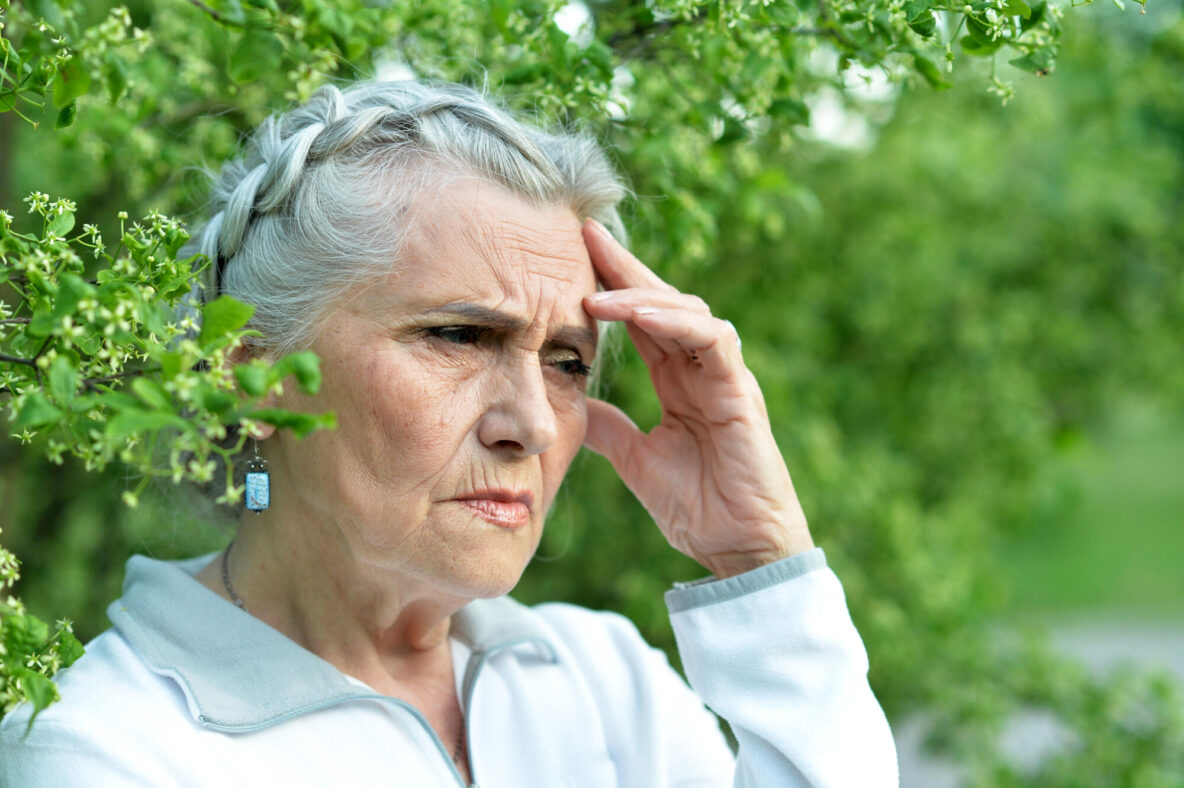Did you know that, according to the WHO, approximately 14% of adults aged 60 and over live with a mental disorder? April is Stress Awareness Month, a time to focus on the unique challenges seniors face regarding stress and mental health.
Understanding how stress affects older adults is crucial for promoting well-being and relaxation. So let’s explore the impact of stress on seniors and offer practical strategies to enhance their daily lives.
Senior Mental Health: Understanding Stress
Stress can affect people at any stage of life, but older adults often face challenges that make it harder to manage. There are three primary ways stress impacts seniors:
- Health concerns and chronic conditions
- Emotional and cognitive effects
- Changes in daily life and independence
Health Concerns and Chronic Conditions
Many seniors deal with ongoing health problems that add to their stress. Chronic pain, mobility issues, and serious illnesses can make daily tasks more difficult.
Doctor visits, medication management, and uncertainty about the future may increase feelings of worry. Stress has been linked to heart disease, high blood pressure, and a weakened immune system, making it important for seniors to find ways to reduce its impact.
Emotional and Cognitive Effects
Long-term stress can affect emotional well-being. Seniors may experience increased anxiety, mood swings, or symptoms of depression.
Memory issues or trouble concentrating can also become more noticeable under stress. Feelings of isolation or loneliness can make these problems worse, especially for those who have lost friends or family members.
Changes in Daily Life and Independence
As people age, their routines and abilities often change. Adjusting to retirement, needing help with certain tasks, or moving to a different living arrangement can cause stress.
Many seniors worry about losing independence or feeling like a burden to others. Finding ways to adapt to these changes can help reduce stress and improve overall well-being.
Recognizing Signs of Stress
Stress can build up over time, making it hard to recognize when it becomes a problem. There are three common ways stress shows up in older adults:
- Physical symptoms
- Emotional changes
- Behavioral shifts
Physical Symptoms
Stress can take a toll on the body, leading to noticeable discomfort. Many seniors experience fatigue, headaches, muscle tension, or stomach issues. Trouble sleeping is common and can make existing health conditions worse.
Stress may also lead to high blood pressure, rapid heartbeat, or shortness of breath. These symptoms can sometimes be mistaken for other health problems, making it important to consider stress as a possible cause.
Emotional Changes
Seniors dealing with stress often feel anxious, irritable, or overwhelmed. Mood swings can become more frequent, and some may experience periods of sadness or hopelessness.
Memory issues or trouble focusing may appear, even in those who normally stay sharp. These emotional effects can lead to frustration and a sense of being out of control.
Behavioral Shifts
Stress can change how seniors interact with others. Some may start avoiding social activities or lose interest in hobbies they once enjoyed. Eating habits may change, leading to weight gain or loss.
Some may become more forgetful about daily routines or avoid tasks they once handled with ease. Noticing these changes can help loved ones step in and offer support before stress leads to deeper isolation.
Stress Awareness Month
Stress Awareness Month is a reminder that managing stress is important at every stage of life. For seniors, stress can come from health challenges, financial concerns, or changes in routine.
Many older adults may not realize how much stress affects their mental and physical health. Recognizing these effects and taking small steps to reduce daily stress can lead to a better quality of life.
This month is an opportunity for seniors to learn about stress management and find ways to improve well-being. Bringing awareness to stress-related health risks encourages open conversations about mental health.
It also helps reduce the stigma that may prevent some seniors from seeking help. Support from family, friends, and community resources can make a difference in helping seniors feel more at ease.
Stress Awareness Month is not just about recognizing stress. It’s about taking action.
Understanding stress triggers and making small lifestyle adjustments can improve emotional balance. Whether through relaxation techniques, physical activity, or social engagement, seniors can benefit from focusing on mental well-being this month and beyond.
Healthy Aging Through Stress Reduction
Managing stress is an important part of healthy aging. There are three ways to promote healthy aging while lowering stress:
- Eating a balanced diet
- Staying active with regular movement
- Getting quality sleep
Eating a Balanced Diet
The food a person eats can affect stress levels. A diet rich in fresh fruits, vegetables, whole grains, and lean proteins can help support brain function and energy levels.
Some foods, like those high in added sugar or processed ingredients, can increase stress and lead to fatigue. Staying hydrated is just as important. Dehydration can cause headaches and mood changes, making stress harder to manage.
Staying Active with Regular Movement
Exercise helps lower stress by releasing natural mood-boosting chemicals in the brain. A daily walk, stretching, or light strength exercises can make a difference.
Moving the body helps improve circulation and keeps joints from becoming stiff. Activities like gardening, dancing, or swimming can keep seniors active in a way that feels enjoyable rather than like a task.
Getting Quality Sleep
Sleep plays a major role in stress management. Poor sleep can make stress feel worse and lead to irritability, trouble focusing, and low energy.
A consistent bedtime routine can help signal to the body that it is time to rest. Avoiding caffeine late in the day and creating a quiet, dark space for sleep can lead to better rest and an overall calmer mind.
Managing Stress in Old Age
Stress Awareness Month is a reminder to focus on well-being through relaxation, healthy habits, mindfulness for seniors, and social connections.
At The Capstone at Royal Palm, our assisted living and SHINE® Memory Care community in Royal Palm Beach offers a vibrant, comfortable lifestyle with no monthly buy-in fees and flexible leasing.
We provide engaging social programs, personalized care, and chef-prepared meals in a welcoming environment.
Get in touch today to find out how we can help with your loved one’s stress.



